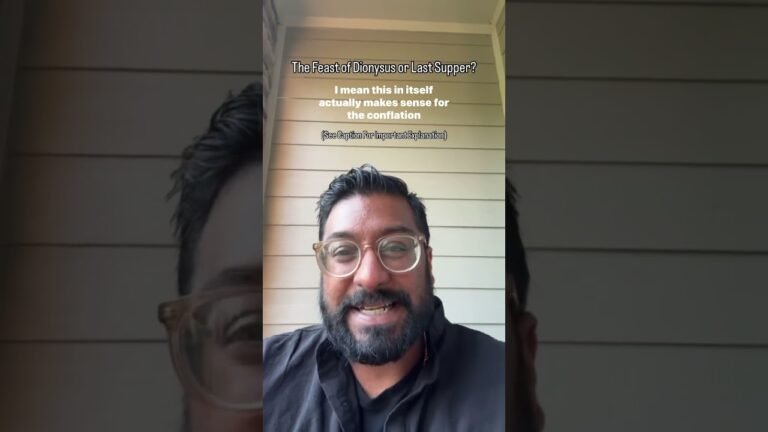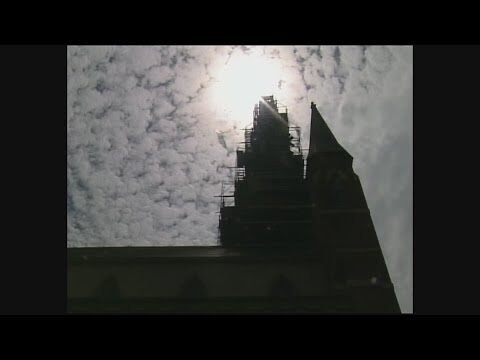Israel Strikes Church in Gaza
In a devastating escalation of conflict, Israel has bombed a church in Gaza, raising alarms about the deepening humanitarian crisis in the region. This incident not only highlights the ongoing violence but also underscores the challenges faced by civilians caught in the crossfire. As the situation unfolds, the international community grapples with the implications of such actions on peace efforts and the protection of sacred spaces amidst warfare.
What are the implications of Israel bombing churches?
The bombing of churches in Gaza by Israel raises concerns about humanitarian impact, religious freedom, and escalates tensions in an already volatile conflict.
What led to the incident of Israel bombing a church in Gaza?
The incident of Israel bombing a church in Gaza can be traced back to the intensifying conflict in the region, characterized by escalating hostilities between Israeli forces and Hamas militants. As tensions rose, the church, which had been serving as a refuge for civilians seeking shelter from the violence, became embroiled in the crossfire. Israeli military operations aimed at neutralizing perceived threats in densely populated areas inadvertently placed civilian structures, including places of worship, at risk, leading to tragic outcomes.
In the chaos of urban warfare, the distinction between combatants and non-combatants often blurs, resulting in unintended consequences. The bombing of the church sparked outrage and condemnation from various international communities, emphasizing the urgent need for renewed dialogue and a commitment to protecting civilian lives in conflict zones. This incident serves as a stark reminder of the human cost of war, highlighting the critical importance of addressing underlying grievances to prevent further tragedies.
What are the humanitarian implications of the bombing of a church in Gaza?
The bombing of a church in Gaza carries profound humanitarian implications, as it underscores the vulnerability of civilian spaces in conflict zones and the tragic impact on communities already facing immense hardships. Places of worship, like churches, symbolize safety, refuge, and hope for many, providing not only spiritual solace but also critical support services to those in need. The destruction of such a site can lead to a deep sense of loss and despair among the local population, exacerbating the psychological toll of ongoing violence and displacement.
Additionally, targeting a religious site raises significant concerns about the protection of cultural and religious heritage during armed conflicts. It can provoke communal tensions and deepen existing divides, undermining efforts toward peace and reconciliation. The humanitarian fallout extends beyond immediate casualties; it affects social cohesion, disrupts community networks, and can hinder access to essential services, leaving vulnerable populations even more isolated in a time of crisis. This tragic event serves as a stark reminder of the urgent need for safeguarding civilian lives and heritage in all conflict situations.
How has the international community responded to the bombing of a church in Gaza?
The international community has expressed profound outrage following the bombing of a church in Gaza, condemning the attack as a violation of humanitarian principles and a grievous affront to religious freedoms. Multiple governments and organizations have called for an immediate investigation, emphasizing the need for accountability and protection of civilian structures in conflict zones. Statements from various leaders highlight the importance of safeguarding places of worship, underscoring that such acts not only harm communities but also undermine efforts toward achieving peace in the region.
In addition to official condemnations, humanitarian organizations have mobilized to provide aid to those affected by the violence, recognizing the urgent need for support in the aftermath of the tragedy. There have been calls for increased diplomatic efforts to address the underlying issues contributing to the ongoing conflict, with many advocating for renewed peace talks. The solidarity shown by various nations reflects a growing consensus that dialogue and cooperation are essential for fostering stability and preventing further atrocities in Gaza and beyond.
A Conflict’s Impact on Sacred Spaces
In times of conflict, sacred spaces often become battlegrounds for opposing ideologies, leaving a profound impact on the communities that hold them dear. These sites, once symbols of unity and peace, can transform into reminders of division and strife, their walls echoing the tensions of the outside world. The desecration or militarization of these areas not only disrupts spiritual practices but also fractures the cultural identity tied to them, leading to a loss of heritage that can take generations to heal. As communities strive to reclaim and restore their sacred spaces, the journey toward reconciliation becomes a testament to resilience, underscoring the vital role these sites play in fostering hope and healing amidst turmoil.
Faith Under Fire: The Gaza Church Incident
In a world often marked by conflict, the recent incident involving a church in Gaza serves as a poignant reminder of the fragile nature of faith amidst adversity. As tensions escalated in the region, the church became a symbol of hope for many, providing solace and sanctuary for those seeking refuge from the chaos surrounding them. This unexpected attack not only disrupted a place of worship but also ignited a broader conversation about the role of faith in times of crisis and the resilience of communities facing persecution.
The response from local and international faith leaders has been overwhelmingly supportive, emphasizing a unified stand against violence and a commitment to peace. The incident has sparked solidarity initiatives, encouraging interfaith dialogues that transcend cultural and religious boundaries. This collective response highlights a shared belief in the power of faith to heal wounds and bridge divides, showcasing the strength of community in the face of adversity.
As the dust settles, the church in Gaza remains a beacon of hope and resilience, reminding us that even in the darkest times, faith can shine through. The incident has galvanized efforts to protect places of worship, fostering a renewed sense of purpose among believers. In a region often overshadowed by strife, this moment serves as a testament to the enduring spirit of faith and the unwavering commitment to peace that many hold dear.
When War Meets Worship: An Unfolding Tragedy
In the shadows of conflict, the sacred spaces that once brought solace and community become battlegrounds of despair. Churches, mosques, and temples, intended as havens of peace, are now often caught in the crossfire of war. The unfolding tragedy lies not only in the destruction of these revered sites but also in the shattering of spiritual lives and communal bonds. As the echoes of prayers are drowned out by the sounds of gunfire, faith is tested, and the very essence of worship is transformed into a struggle for survival.
Amidst the chaos, stories of resilience emerge, highlighting the unbreakable spirit of those who refuse to abandon their faith. Courageous individuals gather in makeshift sanctuaries, where the flickering light of candles serves as a beacon of hope. They cling to their beliefs, finding strength in unity and purpose even as the world around them crumbles. Through acts of kindness and solidarity, they demonstrate that worship can transcend physical spaces, becoming a powerful force in the face of adversity.
Yet, the scars of war run deep, leaving an indelible mark on the fabric of society. The intertwining of faith and conflict creates a paradoxical reality where the sacred is tainted by violence. As communities grapple with loss and displacement, the challenge remains to rebuild not just the structures of worship but the very principles of compassion and understanding that they represent. In this tragic intersection of war and worship, the quest for peace becomes a sacred act, reminding us that even in the darkest times, the human spirit can shine brightly.
Echoes of Destruction: The Church Attack in Gaza
In a devastating turn of events, the recent attack on a church in Gaza has sent shockwaves through the community, amplifying the already palpable tension in the region. This act of violence not only targets a sacred space but also echoes the broader struggles faced by countless individuals caught in the crossfire of conflict. As families mourn the loss of life and the destruction of their spiritual sanctuary, the need for dialogue and reconciliation becomes increasingly urgent.
The aftermath of this tragic event highlights the resilience of those who remain steadfast in their faith despite overwhelming adversity. In the face of destruction, local leaders and community members are coming together, determined to rebuild not just their physical spaces but also their sense of unity and hope. As the world watches, the resilience of Gaza’s citizens serves as a powerful reminder of the enduring strength found in faith and community, even amidst the echoes of destruction.
The recent bombing of a church in Gaza by Israeli forces has sparked outrage and concern worldwide, highlighting the urgent need for dialogue and peace in a region fraught with conflict. This tragic incident not only affects the local community but also raises profound questions about the protection of sacred spaces and the humanitarian implications of ongoing hostilities. As global attention shifts to the plight of those affected, it is primordial to advocate for a resolution that prioritizes human rights and fosters a lasting peace for all.







